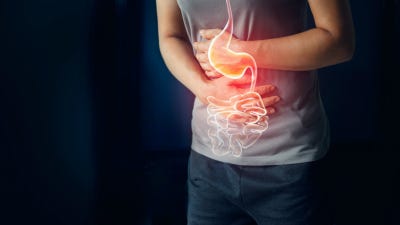Ask the Pharmacist: How BPC 157 helps tendons and your tummy

I recently introduced you to BPC 157 which is made of amino acids that originate from a protective stomach protein. The result is considered synthetic, even though it is derived from natural stomach compounds.
BPC 157 has been around since the 1990s but only now are we seeing more research on how it can help quickly support the body’s gastrointestinal, brain and musculoskeletal system. Most of the animal research was done on animals showing support for BPC 157’s ability to positively impact muscles, ligaments, tendons, teeth, bones and intestines. A rabbit study suggests this compound can even heal bones to some extent.
Is it a drug, an herb, or a vitamin? It’s none of those. BPC 175 is a peptide (like a tiny protein). It is not a drug, and it’s not an herb and yet it is sold as a dietary supplement (mainly online) in a growing category of supplements called “peptides.” The peptide supplements are gaining popularity quickly, especially those that can be given orally. Most peptides require a tiny needle to be self-injected via the SQ route.
While we are learning more and more about BPC 157, it’s a good idea to check with your primary care physician or pharmacist to see if this or any supplement you take, can interact with any prescription you take, or adversely affect your medical conditions. It is a growth factor, and as such, it increases angiogenesis which can be problematic for some people especially those with cancer.
The positive scientific data for BPC 157 abounds. Some say it can offset fatigue from intensive exercise, even though its main claim to fame is for reversing GI damage inflicted by drinking alcohol, having Celiac, or “leaky gut” syndrome, or from taking NSAID medications. You know the NSAIDs as aspirin, ibuprofen, naproxen, ketoprofen, oxaprozin and indomethacin and these drugs sometimes cause ulcers in the elderly.
Most physician’s treating NSAID-induced ulceration don’t know about this peptide yet, in fact, because they almost always use conventional drugs such as misoprostol or acid-reducing medications. The trials suggest that BPC 157 can help to repair the lining of the GI tract. No surprise there since it is derived form a protective protein naturally found in our gastric juice!
The following claims have been validated by animal studies include:
- Support healing of soft tissue.
- Support a healthier allergic response to natural triggers.
- Improve intestinal and bowel problems.
- Repair and protect the liver, gut and pancreas.
- Support healthy blood pressure numbers.
- Improve serotonin transport which impacts mood.
If you are interested in learning more about BPC 157 and its other uses, I wrote a longer version of this article that includes some research links, and I can email you that. Just sign up my free newsletter at suzycohen.com. To purchase BPC 157 oral supplements, check online right now, as it is not widely available at the health food stores yet and remember to ask your practitioner(s) if it’s right for you.
More:Ask the Pharmacist: Autoimmune disorders and infection risk
And:Ask the Pharmacist: How hawthorn lowers blood pressure
Also:Ask the Pharmacist: Solutions for gastrointestinal upset
Suzy Cohen is a registered pharmacist. The information presented here is not intended to treat, cure or diagnose any condition. Visit SuzyCohen.com.